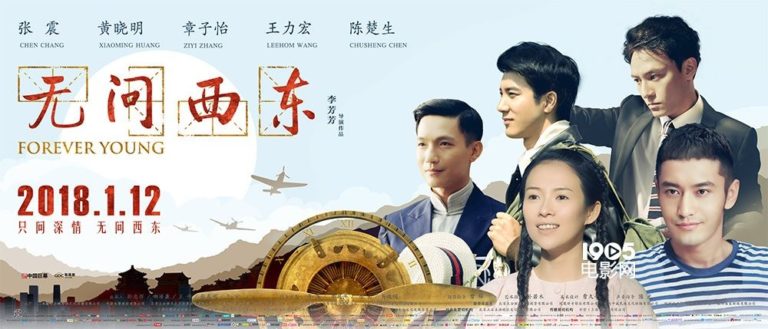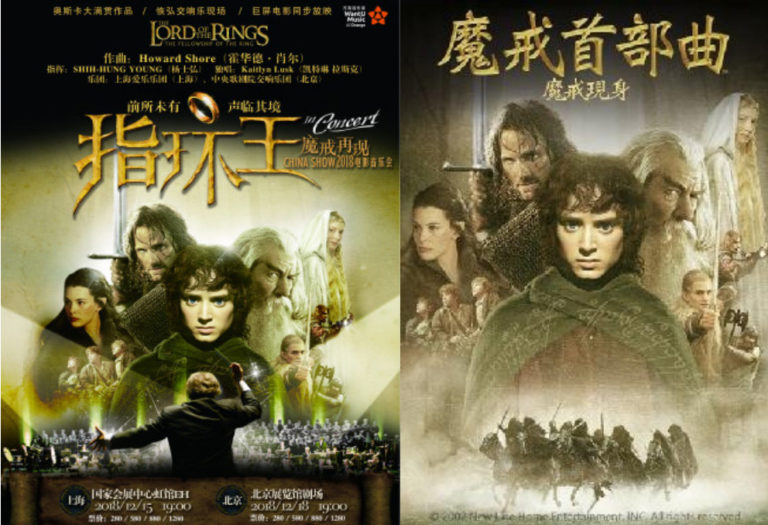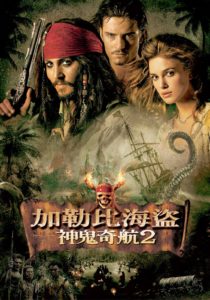Local styles & film title translations in different Chinese markets
What makes a successful film title translation is often subjective and the centre of much debate. For a film to be successful in a foreign market, aside from creative and innovative marketing campaigns, it is crucial to have the right film name to grab the attention of your local target audience and generate anticipation and an emotional connection that will get people to pay for a cinema ticket.
There are significant differences between film title translations in simplified and traditional Chinese. This is mainly related to the inherent cultural and stylistic differences in the writing systems, and the big three areas in which they’re used: Mainland China, Hong Kong and Taiwan. Some simplified Chinese translations of film titles can seem unnatural to an audience accustomed to traditional Chinese, and vice versa. Therefore, understanding cultural nuances is crucial in creating a successful end product for the target audience.
FILM NAMING STYLES IN ENGLISH & CHINESE
Naming conventions vary from culture to culture. Take English language films, for instance. Compared with Chinese films (both simplified and traditional), English film titles are usually simpler and more straightforward in contrast with Chinese titles.
For example, the title of the American horror film “Saw”, the romance drama “The Notebook” and the comedy “The Terminal” are nouns, usually a place, object, or name of note in the wider film narrative. English film titles have more freedom in terms of length, form and structure. They can be made up of one word or a whole sentence, and the genre or tone of a film can’t often be guessed by the title alone.

Chinese films titles usually contain more information, making it easier to guess the genre of a film based solely off the title. This information often relates to a key scene, theme, or concept in the film. For example, the title of the popular gay romance “Happy Together”, is originally known as “春光乍洩”, a Chinese idiom depicting the beginning of spring. It refers to the first appearance of a new thing, and nowadays people use it to mean a wardrobe malfunction. The film’s title also subtly implies the fleeting moments in the characters’ relationship and creates intrigue around the plot.
Another example is the historical action film “Bodyguards & Assassins”, or “十月圍城” which is set during the Chinese revolution. The title reveals when the film takes place, “十月” (October), and introduces the tension of the story by highlighting one of its key scenes. The same goes for the blockbuster “Forever Young”, or “无问西东”. Set in Tsinghua University, its Chinese title is, in fact, an extract of lyrics from the university’s patronal song.
LOCALISATION IN SIMPLIFIED AND TRADITIONAL CHINESE
Interestingly, even though both simplified and traditional Chinese have similar naming conventions, they still have their respective preferences when it comes to the translation and localisation of English language film titles.

Most simplified Chinese film titles are direct translations. For example, the American action film “The Fast and the Furious” is directly translated into “速度与激情”, or “Speed and Passion”, and the epic fantasy series “The Lord of the Rings” is translated into “指环王”, or “Ring King”.
Meanwhile, the traditional Chinese translations stray further from their original titles, and are more like transcreations. “The Fast and the Furious” is translated into “玩命關頭” in Taiwan [Life-risking Moments] or “狂野時速” [Furious Hourly Speed] in Hong Kong. “The Lord of the Rings” becomes “魔戒” [Magic Ring].
A MATTER OF LOCAL TASTE
Since there’s a difference, the comparison of which version is better often arises.
 The most widely-discussed example is the title translation of the science fiction film “The Day After Tomorrow”. Audiences that use traditional Chinese criticised the simplified Chinese translation “后天” of “The Day After Tomorrow” as a failure. As a direct translation, it refers simply to a random day in the calendar, completely losing the imagination the original title intended. In traditional Chinese, it was translated as “明天過後” in Taiwan, or “明日之後” in Hong Kong, both meaning “After Tomorrow”. This version implies an unknown future of the world after tomorrow, which captures the theme of the film without deviating from the original title.
The most widely-discussed example is the title translation of the science fiction film “The Day After Tomorrow”. Audiences that use traditional Chinese criticised the simplified Chinese translation “后天” of “The Day After Tomorrow” as a failure. As a direct translation, it refers simply to a random day in the calendar, completely losing the imagination the original title intended. In traditional Chinese, it was translated as “明天過後” in Taiwan, or “明日之後” in Hong Kong, both meaning “After Tomorrow”. This version implies an unknown future of the world after tomorrow, which captures the theme of the film without deviating from the original title.
Similarly, audiences that use simplified Chinese think some traditional Chinese translations are too random and descriptive. One of the most notorious examples is the use of “神鬼” [God Ghost]. There are plenty of films named using “神鬼”, albeit not relating to each other. For example, “Pirates of the Caribbean” is “神鬼奇航” [God Ghost Strange Sailing]; “The Mummy” is “神鬼傳奇” [God Ghost Legend] and “The Others” is “神鬼第六感” [God Ghost Sixth Sense]. These translations may seem systematic, but many traditional Chinese audiences view them as more creative since they better inform the genre of the film. Simplified Chinese audiences, on the other hand, prefer more straightforward titles such as “加勒比海盗” [Caribbean Pirates] and “木乃伊” [Mummy].
GET THE NAME RIGHT
When it comes to localising film titles in simplified and traditional Chinese, it helps to know your audience. What works best for one, won’t necessarily work for the other. Neither style is necessarily better than the other, as translation, in this case, is subjective depending on the target market.
Locaria can help advise you on the best quality translations and localised copy to drive audience engagement in over 90 markets. To ensure your products cater well to their intended target market, or to learn more about our multimedia translation services, contact our professional language service team today.



